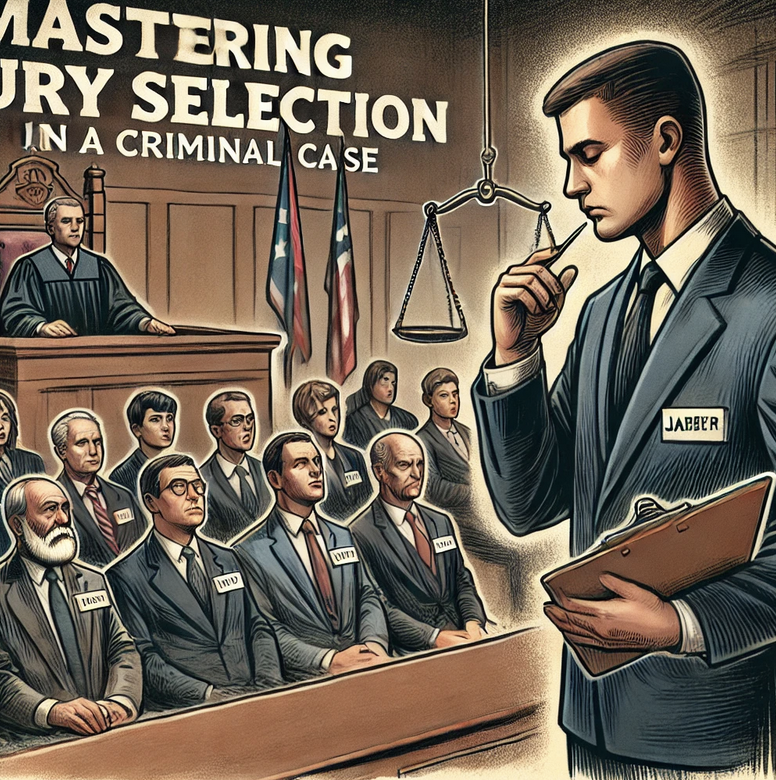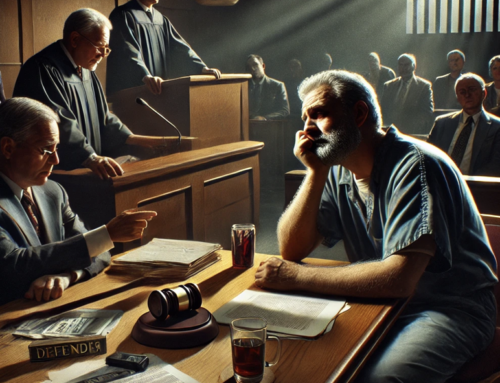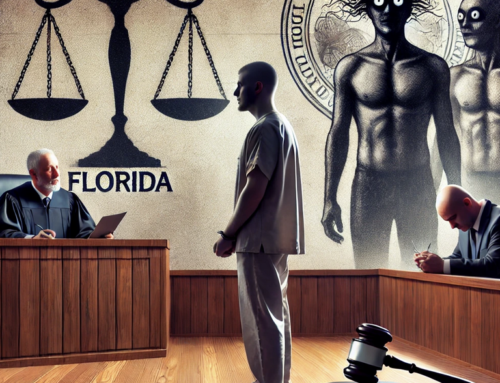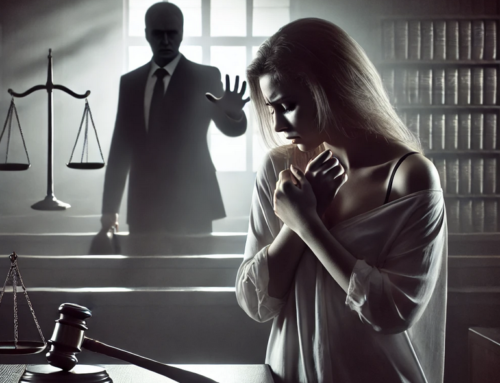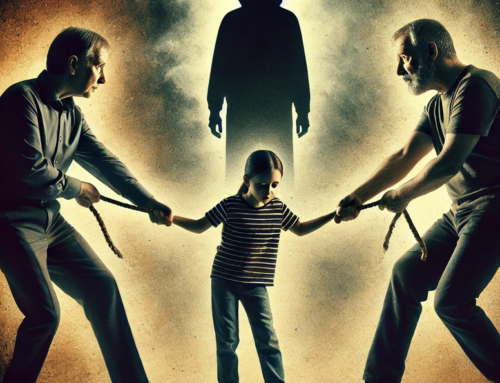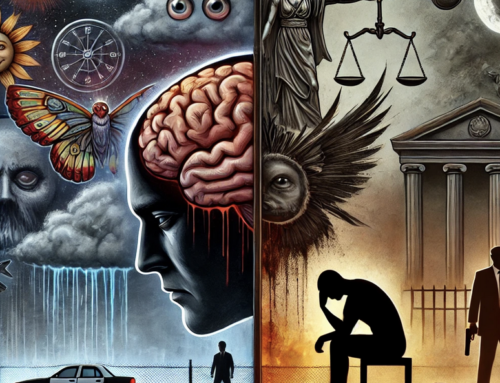Jury Selection
It can be argued that the selection of a good jury is more important than any facts of the case. I happen to believe that the facts of the case are equally important to a good jury selection. Many fellow criminal attorneys have claimed that no amount of evidence against their client would matter, as long as their jury selection is perfect; they believe they will come out on top over the long run, regardless of the circumstances in the case. Although this may very well be true, many lawyers unknowingly lack in their abilities to effectively pick a decent jury. The usual approach to jury selection, voire dire, focuses on asking jurors questions which fall into two categories: affiliative, and attitudinal questions. These questions are thought to show any conscious or unconscious preferences a prospective juror may have towards the prosecution or defense.
What are Affiliative and Attitudinal Questions?
Affiliative questions are focused on any groups that a prospective juror identifies with. These questions are supposed to provide the attorney with clues as to where the prospective juror stands on various social issues. Alone, affiliative questions cannot usually be used as the basis for exclusion or selection of an individual. Although many people may believe it is easy to make assumptions about an individual based on a group identity, it is not a very accurate way to go about things; stereotypes are more often than not, incorrect.
Attitudinal questions are more focused on the overt attitudes of the prospective juror in regards to a variety of subjects, including any issues that may be relevant to the case. For example, an attorney may ask if they see a law enforcement officer as being more or less credible than a normal individual, or how they feel about the presumption of innocence until proven guilty, to name a few. Questioning an individual on their attitudes about certain religions, race, or how they feel about circumstantial evidence, is not uncommon.
What About Experiential Questions?
Asking an individual if they are able to relate to the experience of the defendant, or if they know anyone who has every been accused of a similar crime, may be more useful at determining who would be more open to the defense’s case; this is even more important in cases involving any expert testimony about mental states. For example, asking the prospective juror if they can relate to, or have ever “blacked it” when drinking, may be useful in a case involving alcohol. People who are able to relate to any experience with an altered state of consciousness will probably be more open to this idea if the defendant takes the stand, or an expert testifies on behalf of the individual. Questioning the prospective juror on whether or not they have ever acted impulsively, or behaved in a way they later regretted may apply to various types of criminal cases.
Asking specific, carefully worded questions that will relate to the trial may also prepare prospective jurors for any abnormal “mental states” that may be in question in testimony; if previously exposed to these ideas, a juror may find it more believable when a defendant or an expert takes the stand and refers to any similar bizarre mental states.
Mastering Jury Selection in a Criminal Case: A Strategic Guide
Jury selection is one of the most critical stages in a criminal trial. It is the process by which attorneys from both the prosecution and defense evaluate and select the jurors who will ultimately determine the outcome of the case. While this may seem like a straightforward task, in reality, it is a complex and strategic process that requires a deep understanding of human behavior, the specifics of the case, and the potential biases that jurors may bring to the courtroom.
Understanding the Importance of Jury Selection
The jury is the cornerstone of the criminal justice system, tasked with delivering a verdict based on the evidence presented in court. Therefore, selecting a fair and impartial jury is essential for both sides. However, both the defense and the prosecution aim to assemble a jury that they believe will be sympathetic to their case. This is where the art and science of jury selection, and human psychology comes into play.
Steps in Jury Selection
- Preparing for Voir Dire
- Case Analysis: Before jury selection begins, it is crucial for the attorney to thoroughly analyze the case. This includes understanding the evidence, the key witnesses, and the potential defenses or prosecution strategies. Identifying the themes of the case can help determine what kind of jurors might be most receptive to your arguments.
- Jury Research: In high-profile cases or cases with significant resources, attorneys might use jury consultants to research potential jurors. This could include examining social media profiles, previous jury service, or public records to identify biases or preconceptions that might affect the case.
- Crafting Effective Questions
- Open-Ended Questions: During voir dire, attorneys ask potential jurors a series of questions to uncover biases. Open-ended questions are particularly useful as they encourage jurors to speak freely about their thoughts and experiences. For example, asking, “How do you feel about the criminal justice system?” can provide insights into a juror’s beliefs and attitudes.
- Case-Specific Questions: Tailoring questions to the specifics of the case can help identify jurors who might have preconceptions or biases. In a DUI case, for example, asking, “Have you or anyone close to you been affected by drunk driving?” can reveal potential biases.
- Hypothetical Scenarios: Presenting hypothetical scenarios related to the case can also be an effective way to gauge a juror’s potential reaction to the evidence. For instance, “If you were presented with this type of evidence, how would you evaluate its credibility?” can reveal a lot about a juror’s thought process.
- Reading Nonverbal Cues
- Body Language: Jurors’ nonverbal communication—such as eye contact, body posture, and facial expressions—can provide clues about their attitudes and comfort levels. A potential juror who avoids eye contact or appears closed off might have reservations or biases that they are not expressing verbally.
- Group Dynamics: Observing how potential jurors interact with each other during breaks or before the selection process begins can also offer insights. Group leaders, who others naturally look to for guidance, can influence the dynamics of deliberation.
- Striking Jurors
- For Cause Strikes: Attorneys can request to remove a juror for cause if they believe the juror cannot be impartial due to bias or a conflict of interest. For instance, a potential juror who expresses strong opinions about the guilt of the defendant before hearing any evidence would likely be struck for cause.
- Peremptory Challenges: Each side also has a limited number of peremptory challenges, allowing them to remove jurors without providing a reason. This is often used strategically to remove jurors who might seem impartial but give off subtle cues of potential bias.
- Building a Narrative
- Juror Profiles: Attorneys often develop profiles of ideal jurors based on the case’s needs. For example, in a case involving complex financial crimes, a defense attorney might prefer jurors who are skeptical of authority or who have experience with accounting or finance, believing they will scrutinize the evidence more closely.
- Sympathetic Jurors: Identifying jurors who might have a personal connection to the case’s themes—such as someone with experience in law enforcement in a case involving police testimony—can be advantageous. However, attorneys must also be wary of such connections leading to biases.
- Adapting to the Unexpected
- Unexpected Answers: Jurors sometimes provide unexpected answers or reveal biases that weren’t initially apparent. Attorneys need to be adaptable, quickly recalibrating their strategies based on new information.
- Judicial Influence: Judges have the power to limit the scope of voir dire and even reject certain strikes, requiring attorneys to be flexible and ready to argue the necessity of their decisions.
Ethical Considerations
While the goal of jury selection is to create a panel that will be favorable to your case, it is important to conduct the process ethically. Attorneys must avoid questions that invade jurors’ privacy or manipulate the selection process unfairly. Maintaining the integrity of the court and ensuring a fair trial is paramount.
Jury selection is a nuanced process that blends psychological insight with legal strategy. By understanding the case, crafting effective questions, and reading potential jurors, attorneys can assemble a jury that is both fair and favorable to their client’s case. Whether you’re in the prosecution or defense, mastering jury selection can be the difference between a conviction and an acquittal.
Legal Terms
Voir Dire: French for “to speak the truth.” The process through which potential jurors from the venire are questioned by either the judge or a lawyer to determine their suitability for jury service. Also the preliminary questioning of witnesses (especially experts) to determine their competence to testify.
Additional Resource for Fledgling Criminal Attorneys:


